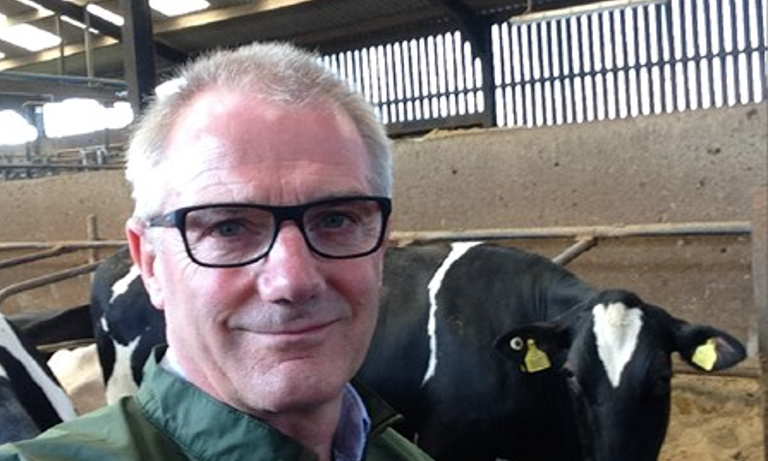Standing up for the veterinary profession
08 Aug 2024
29 May 2024 | Dick Sibley
Last year’s BVA Advancement of Veterinary Science Award (Dalrymple-Champneys Cup and Medal) winner Dick Sibley shares insights from his career in livestock health, and reflects on challenges future professionals must embrace.

We don’t join the veterinary profession to get rich: we followed our careers to make a difference to the health and welfare of the animals under our care. But there is even more to it than that. The modern profession is charged with the responsibilities of securing the health and productivity of our agricultural livestock, as well as the safety of the food derived from it. Sir Weldon Dalrymple-Champneys was the deputy chief medical officer, post second world war, with a particular interest in tuberculosis and brucellosis, which drew him to the value of involving the veterinary profession with public health matters. And so, it is an honour to have been awarded the cup in his name, for services to this profession, while working as a private veterinary surgeon in a farm animal practice in rural Devon.
A talented sector
The farm animal veterinary sector may now be a minority part of our esteemed profession, but it still comprises a wealth of talent and enthusiasm to continue the works of our veterinary ancestors. Indeed, many of the modern major disease programmes, originating with the control and eradication of decimating diseases such as Rinderpest and Contagious Bovine Pleuropneumonia, are now in the hands of private vets working under the direction of our much-reduced state veterinary service. Several national disease control programmes are now industry owned and successfully delivered by enthusiastic private vets and engaged farmers. I have been proud to have been associated with them, and other initiatives particularly associated with dairy cattle health. The list of veterinary names on the D-C Cup bears testament to the pioneers and protagonists of farm animal veterinary practice of the past, who have seen their roles more than just treating sick calves and correcting malpresentations of dystocic cows.
The South West region contains over a third of all the nation’s cattle and it is no coincidence that the area has been at the centre of the recent disease disasters of BSE, Foot and Mouth disease, and Bovine Tuberculosis. These have been, and are, major veterinary challenges. It has been both exciting and fulfilling to have been involved with them, both at a local and national level and has been a great time to be a vet.
Engaging with future challenges
There are still many challenges facing the new generation of vets working in the livestock sector, not least the increasing demands of producing safe food from healthy animals in a way that satisfies consumers, along with the new considerations of environmental safeguards. Production efficiency is clearly linked to health, welfare and carbon efficiency, and so our veterinary role is even more relevant. We need not shy away from engaging in our role of helping modern farming and livestock agriculture deliver safe, wholesome, and valued food from healthy farmed livestock. I am proud to be part of the sector and honoured that my peers have recognised that involvement.
Get tailored news in your inbox and online, plus access to our journals, resources and support services, join the BVA.
Join Us Today